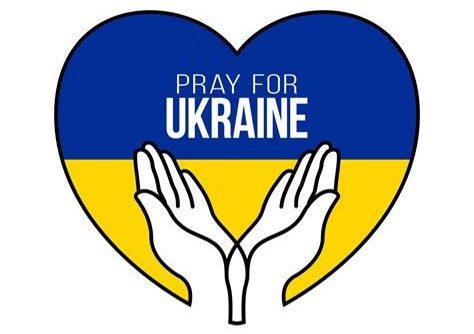After another fun World Book Day where our children have been able to come from loving homes to a safe and supportive school environment, the dire situation in Ukraine is brought into even starker reality. The vast majority of us cannot fully comprehend what it is like for families who are impacted by this invasion, either those who live in Ukraine or those who have families there, but I know there will be a great deal of empathy and heartache throughout our community.
Within school, we have monitored how children have been reacting. It is always very difficult to judge how to address such complex issues with young children when, in some instances, they simply do not concern themselves with what is going on because of a lack of comprehension. However, where the opportunity has arisen, staff have been sharing information and having age-appropriate discussions to address children’s queries and worries. We will continue to present information (e.g. assemblies) and react to the children as we move forward.
On Monday, we will deliver an assembly to Year 5 and 6 children which will aim to give simple facts and reassure them that careful planning by other countries, such as the UK, are aiming to resolve the situation through peaceful action.
How can we provide support to Ukraine?
The Harlow Green community have always been generous and supportive of charities and I know that the plight of the Ukrainians will be one which people will want to help. With that in mind, we wanted to share two ways in which people can support those most in need.
Donating Money
The Disaster Emergency Committee have set up the Ukraine Humanitarian Appeal and by donating you’ll help DEC charities provide food, water, shelter and healthcare to refugees and displaced families. Via the link below, there are options for set amounts or to put in your own amount. For those who are able to donate, please remember to tick the ‘gift aid’ box which provides further funding at no expense to the person donating.
https://donation.dec.org.uk/ukraine-humanitarian-appeal
Donating Items
Birtley Community Centre are asking for donations of items that can be sent to people affected by the war https://www.birtleycommunitycentre.co.uk/
Goods will be sent to the National Strategic Reserves Warehouse – from there, the resources will be allocated based on the request of local parishes and councils. This place has also the ability to send all goods directly to Ukraine.
To support, we would ask our community to donate items by bringing them to school which will then be taken to the community centre. Items would need to be donated between Monday 7th March and Thursday 10th March so they can be taken on the Friday.
Here is the list of needed/urgent items required:
– personal hygiene items: soaps, shampoos, deodorants, toothpaste/toothbrushes, sanitary pads, nappies for babies, tampons,
– baby wipes, toilet papers, tissues, cosmetic swabs,
– FIRST AID kits, bandages, plasters, single-use gloves,
– any booklets for children, crayons, small jigsaws, any cuddly toys – anything that would occupy the children’
– any sweets for children
– FOOD: any sorts for babies in jars, instant food like noodles, tinned food
– Single-use forks with plates, water bottles
– Clothes (new preferably) for adults and babies alike, slippers, sleeping bags, blankets, towels
– batteries, power banks
We have had a number of children wanting to show support for Ukraine and, to highlight the way our community will be helping in different ways, they have suggested a non-uniform day on which the children and staff will wear YELLOW and BLUE. This non-uniform day will be organised for Friday 11th March (no money is required).
How can parents/carers support children at home?
At home, children may be starting to have questions about Russia and Ukraine which, understandably, families may be finding it hard to respond to. Below are some materials and guidance that may help.
Basic Management:
- Reduce the amount of media coverage the children are exposed (don’t constantly have the news on with children around).
- Manage the information the children have access to so that it is age appropriate e.g. watch Newsround together https://www.bbc.co.uk/newsround#more-stories-2
- Spend some time talking to children to see what their current thoughts and worries may be and then tackle those specifically.
The document attached provides wider guidance about what families can do when children are exposed to media coverage of traumatic events.
Tips for parents media coverage of traumatic events
If your child is beginning to experience higher levels of anxiety, please ensure that you bring this to the attention of their class teacher so that we can support in school.

